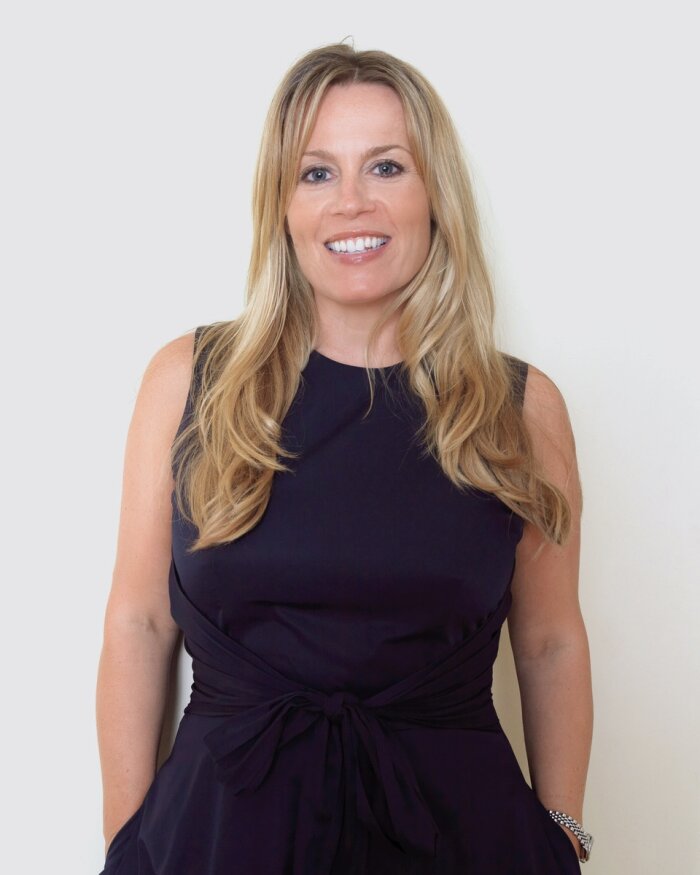The creative consultant, author, podcast host 每 and this year*s Epica Awards Jury President 每 talks to us about her wordsmith DNA, ※creatives§ versus creativity, and her main source of inspiration.

It*s not much of an exaggeration to say that Claire Bridges, the founder of Now Go Create, was destined to have a career that involved words. Growing up, her mother was the editor of a local newspaper, The Cambridge Evening News, while her father was the publisher of agricultural trade magazine Farmer*s Weekly.
※If I had a day off school or a sick day, I*d basically end up at my mum*s newspaper office, hiding under her desk with a book,§ she recalls. ※That definitely gave me a love of language 每 and a nose for stories.§
After studying English as well as journalism and communications, she briefly interned at Today newspaper, but ultimately her attraction to news and her curiosity about people led her to the PR industry.
※Back then, thirty years ago, PR was really about getting stories into newspapers,§ she points out. ※It was about being creative with language, but also about reputation, behaviour change, selling things. And it was fast-paced.§
She worked initially in corporate PR 每 giving her a solid base in the world of publicly listed companies 每 before moving into the somewhat glossier consumer PR field. She worked at the Cake Group before it was bought by Havas, and later at Cohn & Wolfe, where she was ※creative and insight director§, an intriguing title that opened new horizons. In fact she was one of the first female creative directors in the PR industry.
Today Claire runs Now Go Create, providing consultancy, advice and training to help people and organisations develop their creative powers. It has a starry list of clients, too, from Netflix, Disney and Pret A Manger to the UN.
She also hosts the Now Go Create podcast 每 interviewing leading creative thinkers and sharing practical tools 每 and wrote a book called In Your Creative Element.
Before that, though, there was a stint with the Cannes Lions. ※I was invited to be on the PR jury in Cannes back in 2014. I must have looked at around 2000 pieces of creative work on the shortlist. You really have to start honing your abilities to keep your bias in check and evaluate the work with critical thinking.§
Incidentally, she took her one-year-old baby with her. ※It wasn*t quite the ros谷-fuelled fest others were having, but it was still an amazing experience.§
A creative education
To push her creative skills further, she took a Masters in Creativity, Innovation and Leadership. This inspired her book. ※Our final project for the Masters was to create an artefact that represented the entire journey of our studies. I went through all sorts of iterations and ended up with a periodic table of creative elements, which I thought was quite original.§ So did the publisher Kogan Page 每 In Your Creative Element came out in 2016.
By then, Claire*s consultancy was already established, and it had a clear mission. ※Originally I would never have been designated &a creative* 每 and yet I believe that everyone is creative,§ she points out.
She makes a distinction between those who*ve deliberately followed a creative path, perhaps by going to art school, and people in marketing or PR who*ve found themselves in situations where creativity is an attribute. ※A lot of creativity is about problem solving, which is a skill that can be developed.§
Now Go Create was founded to champion a more inclusive approach to creative training. Having raised the creative game at Cohn & Wolfe, she could advise other businesses on how to do the same. Nevertheless, imposter syndrome lingered until after the Master*s. Today she*s an enthusiastic advocate for the use of creativity in all circumstances. ※The World Economic Forum says that creative thinking, problem solving and critical thinking are among the top essential skills.§
Even if we work with an AI to generate ideas, she adds, we need to be able to critically evaluate the output.
A lot of creativity is about problem solving, which is a skill that can be developed
Culture and horticulture
Evaluating ideas, of course, is what the Epica Awards jury is all about. What does she expect from a jury of journalists? ※Journalists have to be able to spot what stands out, what*s making headlines, what*s going to connect culturally. Does it tell a compelling story? And is it relevant beyond the world of advertising?§
They see the work more like a member of the public, she suggests. ※They bring a broader and potentially more objective lens to judging creative work. Unlike those embedded in the industry, they*re less likely to be influenced by internal politics, rivalries, or prevailing trends. Their job is to observe, critique, and report on creativity with a certain distance.§
With all this talk about creativity, I wonder what her own creative outlet is? Gardening, is the short answer. She loves to roll up her sleeves and tend the garden at her home in Winchester. ※A garden can be a blank canvas. You plant the bulbs, you picture the result. What I love about the garden is having a vision and then watching it come to life.§
Above all, it*s creativity for optimists. She quotes Audrey Hepburn: ※To plant a garden is to believe in tomorrow.§